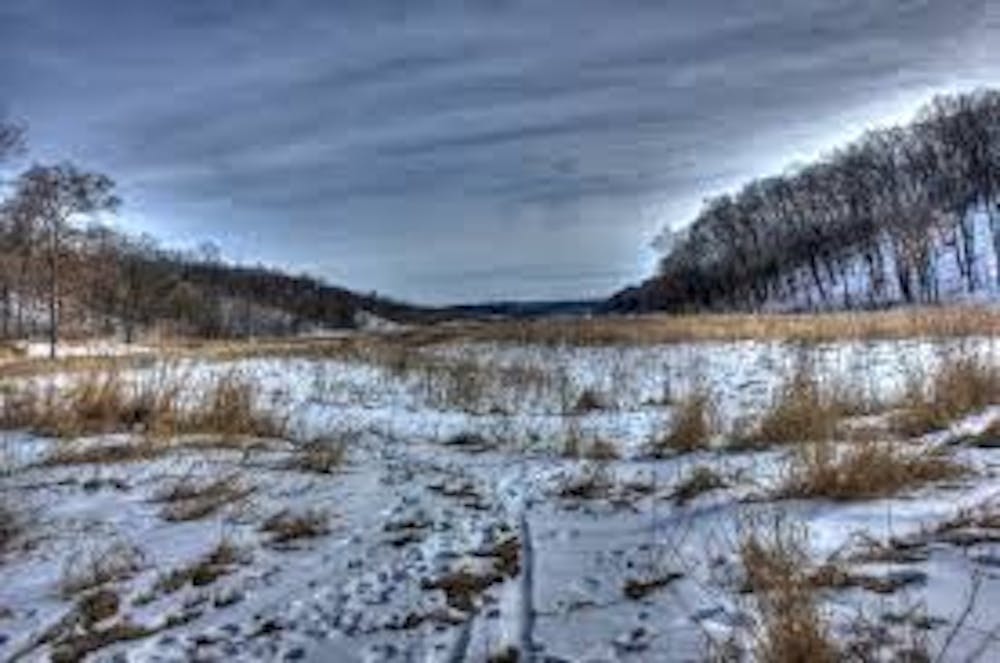At this point, global warming is not a mystery to most people. The causes and risks associated with the phenomenon are very much real and capable of producing irreversible damage to the planet that we and many other species calls home.
Now, a new study from an international research team provides further evidence to bolster the claims of a declining ecosystem.
The research says that if greenhouse-gas emissions are not dramatically reduced, the majority of land-based ecosystems on Earth — forests, grasslands, deserts and tundra — are subject to “major transformation.”
Fossilized records of global vegetation change, such as ancient pollen grains and plant fossils occurring during a period of post-glacial warming, were used to project the possible future trajectory of climate change.
The magnitude of ecosystem transformations under a variety of greenhouse gas emissions scenarios were measured.
With no alteration to the current rate of greenhouse gas emissions, the effect on vegetation throughout wild landscapes would be drastically disruptive. It will also potentially threaten factors such as global biodiversity, water security, carbon storage and recreation.
Jonathan Overpeck, the dean of the School for Environment and Sustainability at the University of Michigan and a co-author of the study, expressed his concern for the future of the ecosystems.
“If we allow climate change to go unchecked, the vegetation of this planet is going to look completely different than it does today, and that means a huge risk to the diversity of the planet,” Overpeck said in a press release.
Overpeck makes it a statement to stress the reality of his findings in relation to its hypothetical methodology.
Although the results were concluded with the hypothetical in mind, they are not strictly hypothetical, as can be observed in places like the American West and Southwest, where forest dieback and massive wildfires are just some of the problems altering the landscape.
“We’re talking about global landscape change that is ubiquitous and dramatic,” Overpeck said, according to Newsweek. “And we’re already starting to see it in the United States, as well as around the globe.”
Previous studies based on computer modeling and present-day observations have identified the buildup of carbon dioxide and other greenhouse gases. However, this study is the first of its kind to use paleoecological data and fossils in its projection calculations.
The period that the fossils are from had a temperature change of four to seven degrees Celsius or seven to 13 degrees Fahrenheit. This is comparable to the expected global warming in the upcoming 100 to 150 years.
“[The research provides] a conservative estimate of the extent of ecological transformation to which the planet will be committed under future climate scenarios,” the authors of the study wrote.
Stephen T. Jackson, director of the U.S. Geological Survey’s Southwest Climate Adaptation Science Center, emphasizes the seriousness of the issue in a press release.
“We’re talking about the same amount of change in 10-to-20 thousand years that’s going to be crammed into a century or two,” Jackson said. “Ecosystems are going to be scrambling to catch up.”
Should there be no change to greenhouse gas emissions in the near future, the probability of large-scale vegetation change is more than 60 percent, whereas if changes are made, the probability drops down to about 45 percent.
There are huge risks associated with large-scale vegetation changes, including the elimination of carbon storage.
“A lot of the carbon now locked up by vegetation around the planet could be released to the atmosphere, further amplifying the magnitude of the climate change,” Overpeck said.
With the well-being of our ecosystems and our planet on the line, combating greenhouse gas emissions is a challenge that we must face together as both a nation and a global community.





